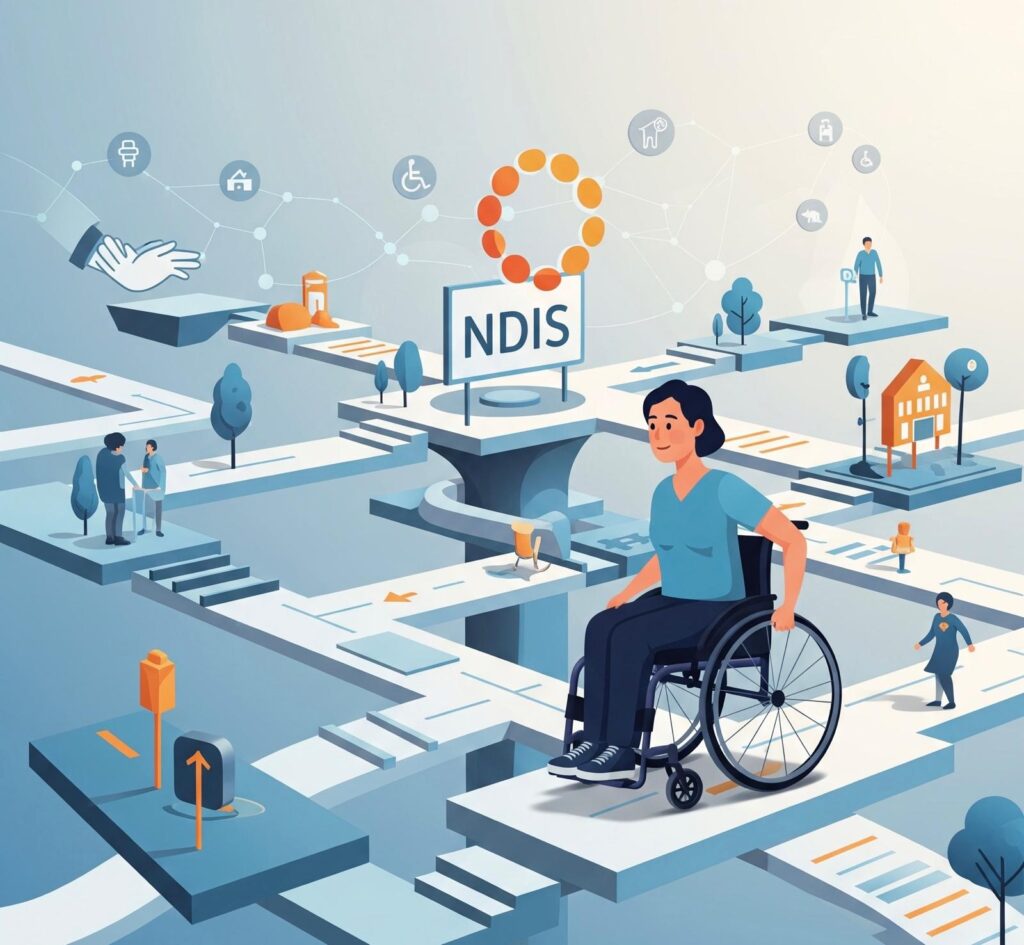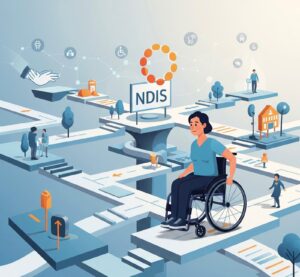The National Disability Insurance Scheme (NDIS) plays a vital role in supporting the mental health and developmental needs of Australian children living with disabilities. Telehealth psychology has emerged as an accessible and flexible option, providing psychological services through virtual platforms. While telehealth has proven effective for adults and adolescents, its appropriateness for children under 10—particularly those supported by the NDIS—raises important questions about its benefits, limitations, and suitability. This article explores whether telehealth psychology is an appropriate modality for NDIS children under 10, considering developmental needs, family involvement, and evidence-based practices.
Keywords: Telehealth psychology for NDIS children, NDIS telehealth services for kids under 10, Virtual therapy for young NDIS participants, Telehealth for children with developmental delays, Benefits of telehealth psychology for kids, Challenges of telehealth for young children, Interactive telehealth therapy for children. NDIS mental health support online, Play-based therapy via telehealth, Parental involvement in telehealth sessions
1. The Growing Role of Telehealth in NDIS Services
Telehealth psychology has transformed the delivery of mental health services, providing a solution for families in rural and remote areas and those with logistical challenges. It allows NDIS children and their families to access support without the barriers of travel and long wait times, making it a critical resource in areas where in-person services are scarce (Hilty et al., 2021).
For NDIS children under 10, telehealth offers additional flexibility. Children can engage with therapy from the comfort of their own homes, reducing anxiety often associated with unfamiliar clinical environments. Moreover, telehealth ensures continuity of care, particularly during disruptions such as the COVID-19 pandemic, when face-to-face services may not be available (Ormstad et al., 2022).
Tip: Telehealth is a practical option for families facing geographical or scheduling barriers, providing accessible psychological services within the NDIS framework.
2. Developmental Considerations for Young Children
Children under 10 have unique developmental needs that influence their engagement in therapy. At this stage, children rely heavily on non-verbal communication, play-based interactions, and hands-on activities, which can be more challenging to facilitate in a virtual format. Attention spans are also limited, requiring shorter and highly interactive sessions to maintain focus and engagement (McCrae et al., 2020).
For NDIS participants, developmental delays, behavioural challenges, or communication difficulties may add complexity to telehealth sessions. Psychologists must adapt their approaches to ensure that therapy is both engaging and developmentally appropriate.
Tip: Tailoring telehealth sessions to align with the developmental stage of the child is crucial for achieving therapeutic success.
3. Benefits of Telehealth Psychology for NDIS Children Under 10
Despite these challenges, telehealth psychology offers significant benefits for young NDIS participants:
1. Accessibility
Telehealth enables children in rural or remote areas to access qualified psychologists who specialise in NDIS services. This is particularly important for families who might otherwise face long travel distances or limited local providers (Gordon et al., 2021).
2. Familiar Environment
Children often feel more comfortable in their home environment, leading to better engagement and reduced anxiety. For NDIS children, this familiar setting can provide a sense of security that enhances the therapeutic process.
3. Parental Involvement
Telehealth facilitates greater involvement of parents and caregivers, who can participate in sessions and learn strategies to support their child’s development. This collaboration can be especially beneficial for NDIS children, as parents play a key role in reinforcing therapeutic techniques.
4. Flexibility
Virtual sessions can be scheduled at convenient times, accommodating family routines and minimising disruptions. This flexibility ensures consistent care and reduces the likelihood of missed appointments.
Tip: Parents and caregivers can play an active role in telehealth therapy, strengthening its effectiveness for young children.
4. Challenges of Telehealth for NDIS Children Under 10
While telehealth offers numerous advantages, it also presents challenges when used with young children:
1. Engagement Difficulties
Young children may struggle to focus during virtual sessions, especially if the format lacks interactive elements or if technical issues arise.
2. Limited Non-Verbal Cues
Psychologists rely heavily on observing body language, facial expressions, and play behaviours, which can be harder to assess through a screen.
3. Play-Based Therapy
Many therapeutic approaches for young children involve play-based activities that are more challenging to replicate virtually. Psychologists may need to adapt these techniques, using digital tools or guiding parents to facilitate activities.
4. Technical Barriers
Poor internet connectivity, lack of appropriate devices, or unfamiliarity with technology can disrupt sessions and reduce their effectiveness.
Tip: Addressing these challenges requires creative adaptations and strong collaboration between psychologists and families.
Telehealth with NDIS Children Under 10
For telehealth psychology to be effective with young children, it must be adapted to their needs. Best practices include:
1. Engaging Parents and Caregivers
Parental involvement is essential for telehealth sessions with children under 10. Parents can facilitate activities, provide behavioural context, and reinforce therapeutic strategies between sessions (McCrae et al., 2020).
2. Shorter, Interactive Sessions
Limiting sessions to 20–30 minutes can help maintain a child’s focus. Using interactive tools such as virtual whiteboards, drawing apps, and games can enhance engagement.
3. Preparing the Environment
Parents should set up a quiet, distraction-free space for therapy, ensuring access to necessary materials such as toys, art supplies, or sensory items.
4. Ongoing Training for Psychologists
Psychologists must be trained in telehealth-specific approaches, including how to adapt play-based therapy to virtual platforms and how to manage technological issues effectively.
Tip: Collaborative planning between psychologists and parents is crucial for optimising telehealth therapy for young children.
6. Evidence Supporting Telehealth for Young Children
Research on telehealth for children under 10 is still developing, but early findings are promising. A study by Ormstad et al. (2022) demonstrated that telehealth interventions can be effective for children with anxiety, developmental delays, and behavioural challenges, provided that sessions are tailored to the child’s developmental level and involve active caregiver participation.
Another study highlighted the importance of building strong therapeutic alliances through telehealth, showing that children and families reported high levels of satisfaction with virtual services (Hilty et al., 2021). However, the success of telehealth often depends on the severity of the child’s condition and the psychologist’s ability to adapt their approach.
Tip: Evidence suggests that telehealth can be an effective modality for young NDIS participants when properly implemented.
7. When Is Telehealth Not Appropriate?
Telehealth may not be suitable for all NDIS children under 10, particularly in cases involving:
- Severe behavioural challenges requiring hands-on interventions.
- Complex developmental conditions needing in-person assessments.
- Children who struggle with technology or virtual engagement.
In such cases, in-person therapy may be more effective. Psychologists should assess each child’s individual needs to determine the best approach.
Tip: Consult with your psychologist to evaluate whether telehealth or in-person therapy is the most suitable option for your child.
Conclusion
Telehealth psychology can be a valuable tool for supporting the mental health and developmental needs of NDIS children under 10. While it presents unique challenges, such as engagement difficulties and the need to adapt play-based therapy, its benefits—including accessibility, flexibility, and parental involvement—make it an effective option for many families. By implementing best practices and tailoring interventions to each child’s needs, telehealth can provide meaningful support within the NDIS framework. Families considering telehealth should consult with qualified psychologists to explore its suitability and ensure the best outcomes for their child.
References
- Gordon, R. M., Hilty, D. M., & Yellowlees, P. M. (2021). The role of telepsychology in supporting children’s mental health. The Psychiatric Clinics of North America, 44(2), pp. 203-214.
- Hilty, D. M., Ferrer, D. C., Parish, M. B., Johnston, B., Callahan, E. J., & Yellowlees, P. M. (2021). The effectiveness of telehealth: A review. Telemedicine and e-Health, 19(6), pp. 444-454.
- McCrae, J. S., Lee, B. R., & Barth, R. P. (2020). Using telehealth to deliver family therapy for children. Journal of Family Social Work, 23(1), pp. 44-58.
- Ormstad, H., Lundqvist, L., & Kiani, K. (2022). Digital interventions for children and adolescents: A systematic review. Internet Interventions, 27, 100497.
- Australian Psychological Society (APS). (2023). Telehealth and Psychology Services in Australia. Retrieved from https://www.psychology.org.au.
How to get in touch
If you or your NDIS participant need immediate mental healthcare assistance, feel free to get in contact with us on 1800 NEAR ME – admin@therapynearme.com.au.







